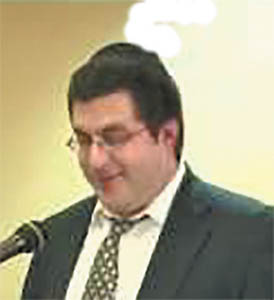

I never know what to do with my hands. Except, magically, when I’m not thinking about them.
In fact, we’re always trying to figure out what to do with our hands, especially when other people are talking: What do I usually do with my hands? I have no idea. What’s he doing with his hands? Should I mirror that? Or would that be weird? He’s holding his kid’s hand. Should I hold his kid’s other hand? I should have brought my kid. Okay, now he’s using his hands to express himself. Would it be weird if I mirror what he’s doing now, or will it show that I’m listening? Because I’m really not.
Thankfully, as a society, we’ve come with certain things to do with our hands in certain situations. But not every situation, unfortunately. And scientists, who, with all their degrees, still don’t know what to do with their hands, have been studying why we do these things.
For example, why do we shake hands? For years, the assumption was that handshaking was invented in ancient times to show the opposing party that you had no weapons. In that hand, anyway. I think it would be much more effective to hug the opposing party—show them that you have nothing in either hand—and then pat each other down.
Another thing we do with our hands, when we’re in large groups, is clap. Why? We have no idea.
“He just finished talking! Let’s fill the silence!”
Why are we repeatedly high-fiving ourselves over someone else’s accomplishments?
We also sometimes clap before the speech. Maybe we’re trying to show that we’re not holding weapons. The person is getting called up to speak, he’s all nervous: “Are they going to throw tomatoes at me?” So we’re showing him that no, we’re not holding tomatoes.
But why clapping? Clapping is weird in the first place. If you were in a one-on-one scenario and the other person finished talking and you suddenly started clapping, it would probably not have the desired effect. But in a crowd it’s okay?
So according to a recent study in Sweden, it turns out that clapping is actually infectious. It’s not like clapping is a natural instinct. Animals don’t clap. Then again, animals don’t shake hands either. Or wave. Or sip cups full of hot air. They walk on all fours. They never have to worry about what they’re doing with their hands. Why are we considered the smartest species?
In fact, the only animals that clap are primates, and they do it to call attention to food. Are we trying to call attention to food?
“The speech is over! Time for the next course!”
Okay, so it’s not infectious, per se. You’re doing it because everyone around you is doing it, and you don’t want to look stupid. Whereas if everyone in the room gets, say, a cold, the reason you get the cold is not that you don’t want to look stupid.
“Everyone else was blowing their noses; I didn’t know what else to do with my hands.”
Speaking of infectious, there’s also (finally) a study on handshakes. The study says that after we shake hands with someone, we tend to sniff our hands.
This study comes from Israel, obviously.
Do we, though? I don’t know. Like you know how everyone shakes the rabbi’s hand on Friday night? You think he takes a big whiff at the end?
On the other hand (oy), none of the subjects involved in the study thought they were sniffing their hands either. Everyone denied doing it. But researchers had a video.
The study was conducted at the Weizmann Institute, and it was one of those studies where you come in and wait for the study to begin, and that’s the study. The researchers observed the subjects when they first came in, and they noticed that people had their hands near their noses roughly 22 percent of the time. The scientists then entered the room, shook hands with the subjects, and said, “The experiment will begin soon. We’ll be back in a few minutes, Israeli time.” Then they ducked back into the monitor room to watch the subjects sit there alone, waiting. And they noticed that within about two minutes, the subjects smelled their fingers at least twice as much as before. Which begs the question: How bad did the scientists’ hands smell?
Of course, the footage alone is not a proof that people are smelling their fingers. There are other reasons to bring your fingers up to your nose while you’re sitting alone in a room and waiting for things to happen. And the scientists anticipated that. But how do you make sure? I guess you could ask.
“No, I wasn’t doing anything! I was just, um, sniffing my hands!”
And there you go.
The conclusion, the researchers decided, is that sniffing our hands is actually part of the handshaking process in the first place. We’re subliminally sizing people up, sort of in the way that dogs sniff each other when they first meet. This would be kind of awkward if we did it, so mankind has come up with a more discreet way of sniffing each other—shaking hands. And then running off to smell them.
But this is after shaking hands with a stranger. So why do we shake hands with people we know? Maybe it’s infectious. Or maybe because we shook hands with them that first time, and that’s always how we do it now, and no one wants to say anything.
Either way, scientists clearly have a major breakthrough on their hands here. They should probably smell them.
By Mordechai Schmutter
Mordechai Schmutter is a freelance writer and a humor columnist for Hamodia, The Jewish Press and Aish.com, among others. He also has five books out and does stand-up comedy. You can contact him at MSchmutter@gmail.com.










